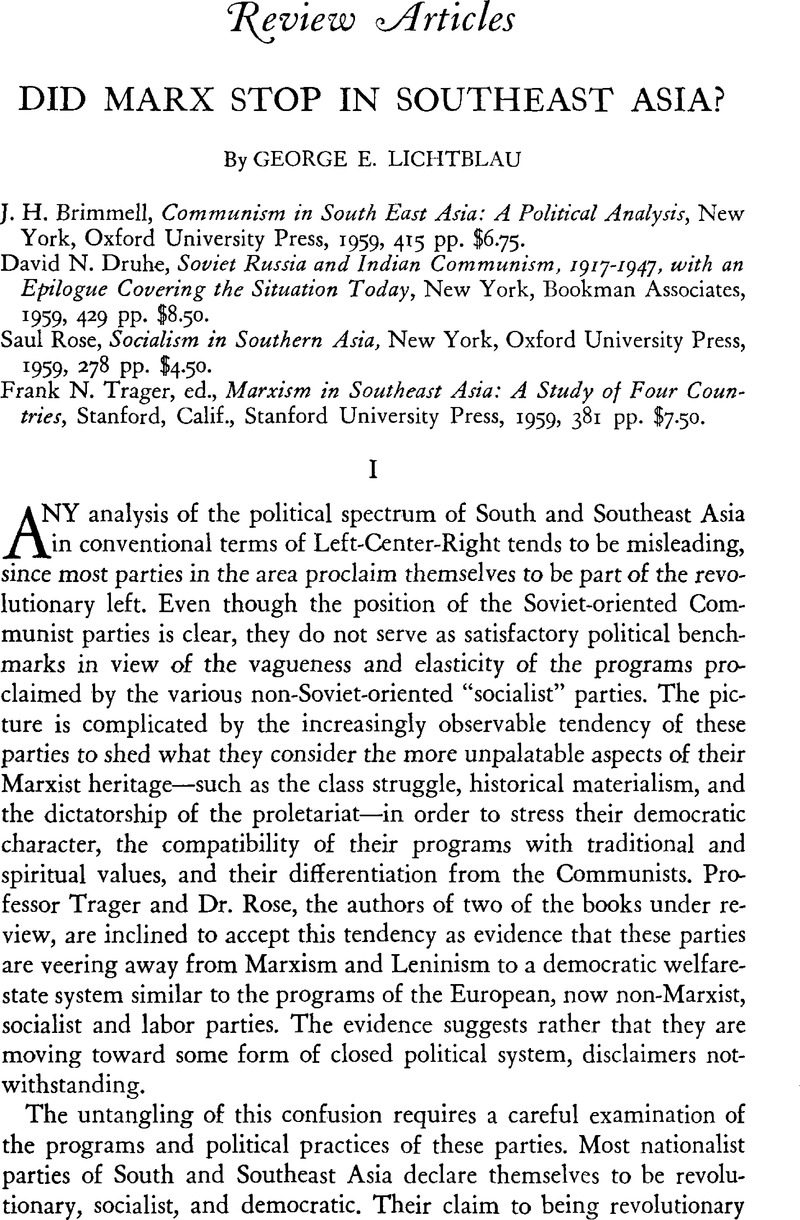No CrossRef data available.
Article contents
Did Marx Stop in Southeast Asia?
Review products
Published online by Cambridge University Press: 18 July 2011
Abstract

- Type
- Review Articles
- Information
- Copyright
- Copyright © Trustees of Princeton University 1960
References
1 Bhoodan was originally a movement for voluntary redistribution of land given up by rich landowners, but has since become a political movement for a “democratic society without political parties.”.
2 As Professor Heimann, Eduard has pointed out in his article, “Marxism and Under developed Countries” (Social Research XIX, No. 3, September 1952, pp. 322–45)Google Scholar, acceptance of the idea of “salvation,” both national and personal, which had hitherto been alien to the East, constituted the main impact of Marx on the colonial world. Such salvation was seen to lie in the establishment of a rational, classless, co-operative society following the liberation from colonialism. This was to be achieved under the guidance of an intellectual elite which could understand the objective historical conditions that were prerequisite to winning the revolution and establishing the new society.
3 For an excellent discussion of these problems on the basis of observations in Africa, see MacKenzie, W. J. and Robinson, Kenneth, Five Elections in Africa, London, 1960.Google Scholar
4 See Levi, Werner, “The Fate of Democracy in South and Southeast Asia,” Far Eastern Survey, XXVII, No. 2 (February 1959), pp. 25–29.CrossRefGoogle Scholar
5 This theory postulates the existence of antagonistic and non-antagonistic contradictions. The antagonistic contradictions refer to China's relations with the West, and the non-antagonistic contradictions to the peaceful transition from the bourgeois to the socialist stage under conditions created by the peoples' liberation movement. See Schwartz, Benjamin, “New Trends in Maoism,” Problems of Communism, VI, No. 4 (July-August 1957), pp. 1–5.Google Scholar
6 See Bernard S. Morris and Morris Watnick, “Current Communist Strategy in Non-Industrialized Areas,” ibid., IV, No. 5 (September-October 1955), pp. 1–6.
7 Bombay, Asia Publishing House, 1959.


